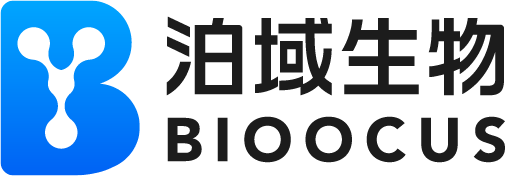2023 ASH Opening | Dr. Peihua Lu Presents CAR-T for Relapsed /Refractory AML Research

A phase I clinical study of CD7 CAR-T for R/R AML by Daopei Lu's team debuts at ASH
The 65th Annual Meeting of the American Society of Hematology (ASH) was held offline (San Diego, USA) and online on December 9-12, 2023.Our scholars made a great show of this conference, contributing more than 60 research results.
The latest results of "Autologous CD7 CAR-T for relapsed/refractory acute myeloid leukemia (R/R AML)", orally reported by Prof. Peihua Lu of Ludaopei Hospital in China, have received a lot of attention.
Treatment of R/R AML presents a dilemma
R/R AML has a poor prognosis, even when undergoing allogeneic hematopoietic stem cell transplantation (allo-HSCT), and there is an urgent clinical need for novel therapeutic options.According to Prof. Peihua Lu, target selection is important in the quest for new therapies, and about 30% of AML patients express CD7 on their leukemoblasts and malignant progenitor cells.
Previously, Lu Daopei Hospital reported 60 patients who applied naturally selected CD7 CAR-T (NS7CAR-T) for the treatment of T-cell acute leukemias and lymphomas, demonstrating significant efficacy and a favorable safety profile.The safety and efficacy of NS7CAR-T expansion into patients with CD7-positive R/R AML was observed and evaluated in a Phase I clinical study (NCT04938115) selected for this ASH Annual Meeting.
Between June 2021 and January 2023, a total of 10 patients with CD7-positive R/R AML (CD7 expression >50%) were enrolled in the study, with a median age of 34 years (7 years - 63 years)The median tumor load of the enrolled patients was 17%, and one patient presented with diffuse extramedullary disease (EMD).从The median time from cell isolation to CAR-T cell infusion was 15 days, and transition therapy was allowed for patients with rapidly deteriorating disease before infusion was administered.All patients received intravenous fludarabine (30 mg/m2/d) and cyclophosphamide (300 mg/m2/d) lymphatic removal chemotherapy for three consecutive days.
Researcher Interpretation: the Dawn of Deep Mitigation
Prior to enrollment, patients underwent a median of 8 (range: 3-17) frontline therapies. 7 patients had undergone allogeneic hematopoietic stem cell transplantation (allo-HSCT), and the median time interval between transplantation and relapse was 12.5 months (3.5-19.5 months).After infusion, the median peak of circulating NS7CAR-T cells was 2.72×105 copies/μg (0.671~5.41×105 copies/μg) of genomic DNA, which occurred at approximately day 21 (day 14 to day 21) according to q-PCR, and at day 17 (day 11 to day 21) according to FCM, which was 64.68% ( 40.08% to 92.02%).
The highest tumor load of the patients enrolled in the study was close to 73%, and there was even one case where the patient had received 17 previous treatments, said Prof. Peihua Lu. At least two of the patients who underwent allo-HSCT experienced recurrence within six months of transplantation. It is clear that the treatment of these patients is full of "difficulties and obstacles".
Promising data
Four weeks after NS7CAR-T cell infusion, seven (70%) achieved complete remission (CR) in the bone marrow, and six achieved CR negative for microscopic residual disease (MRD). three patients did not achieve remission (NR), with one patient with EMD demonstrating a partial remission (PR) on day 35 PET-CT evaluation, and all patients with NR were found to have CD7 loss at follow-up.
The median observation time was 178 days (28 days-776 days). Of the seven patients who achieved CR, three patients who had relapsed after previous transplantation underwent consolidation second allo-HSCT approximately 2 months after remission by NS7CAR-T cell infusion, and one patient remained leukemia-free alive on day 401, whereas two second-transplant patients died of non-relapse causes on days 241 and 776; the other four patients who did not undergo consolidation allo- HSCT, 3 patients relapsed on days 47, 83, and 89, respectively (CD7 loss was found in all three patients), and 1 patient died of pulmonary infection.
In terms of safety, the majority of patients (80%) experienced mild cytokine release syndrome (CRS) after infusion, with 7 grade I, 1 grade II, and 2 patients (20%) experienced grade III CRS. no patients experienced neurotoxicity, and 1 developed mild cutaneous graft-versus-host disease.
This result suggests that NS7CAR-T may be a promising regimen for achieving effective initial CR in patients with CD7-positive R/R AML, even after undergoing multiple lines of therapy upfront. And this regimen is also true in patients who experience relapse after allo-HSCT with a manageable safety profile.
Prof. Lu said, "Through the data we got this time, the CD7 CAR-T treatment for R/R AML is quite effective and well tolerated in the early stage, and the vast majority of patients were able to achieve CR and deep remission, which is not easy. And in NR patients or relapsed patients, CD7 loss is the main problem. In order to fully assess the efficacy of NS7CAR-T in treating CD7-positive AML, the follow-up undoubtedly still needs to be further validated by getting more data from a larger patient population and longer follow-up time, but these also give a lot of hope and confidence to the clinic."










